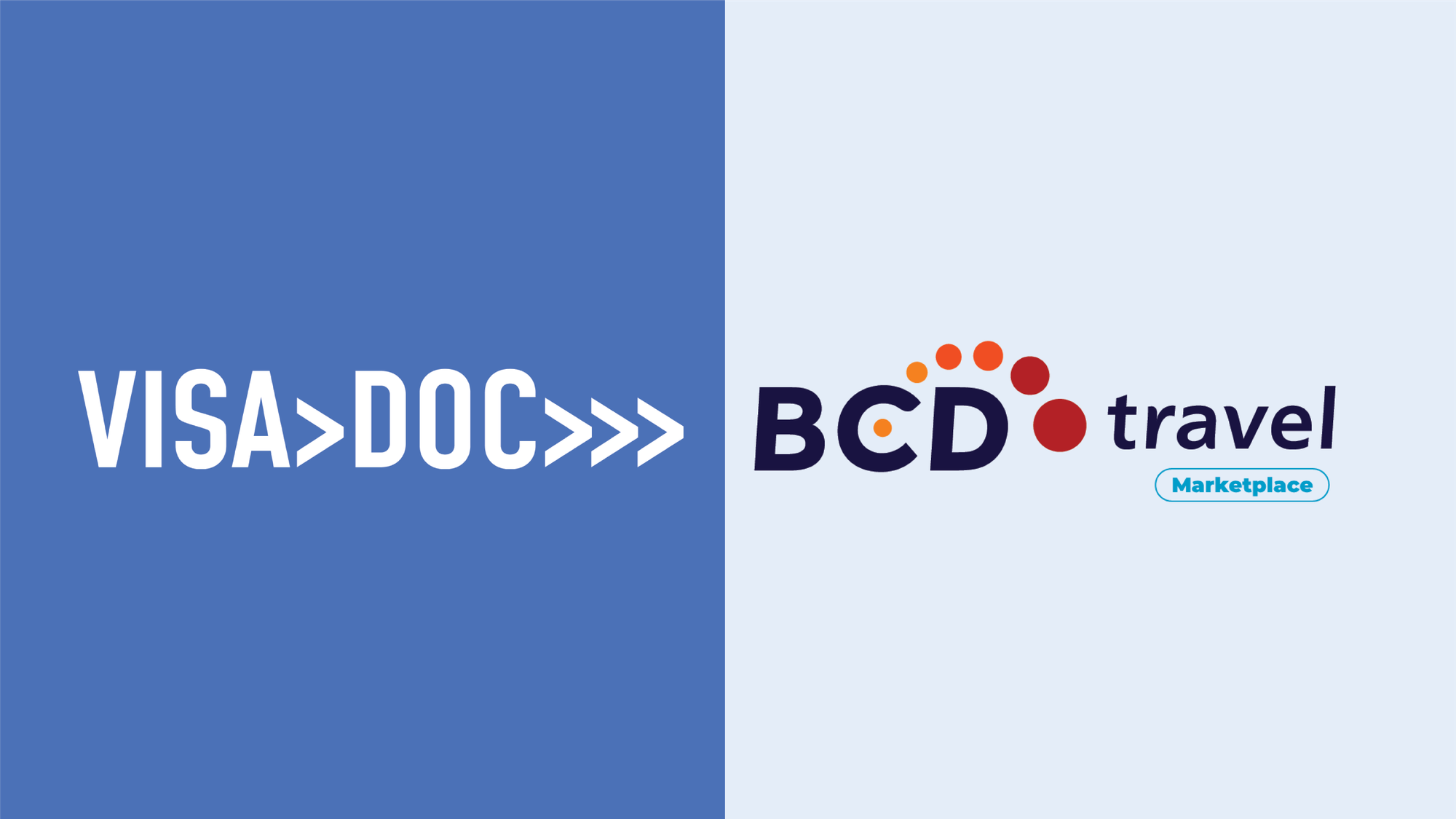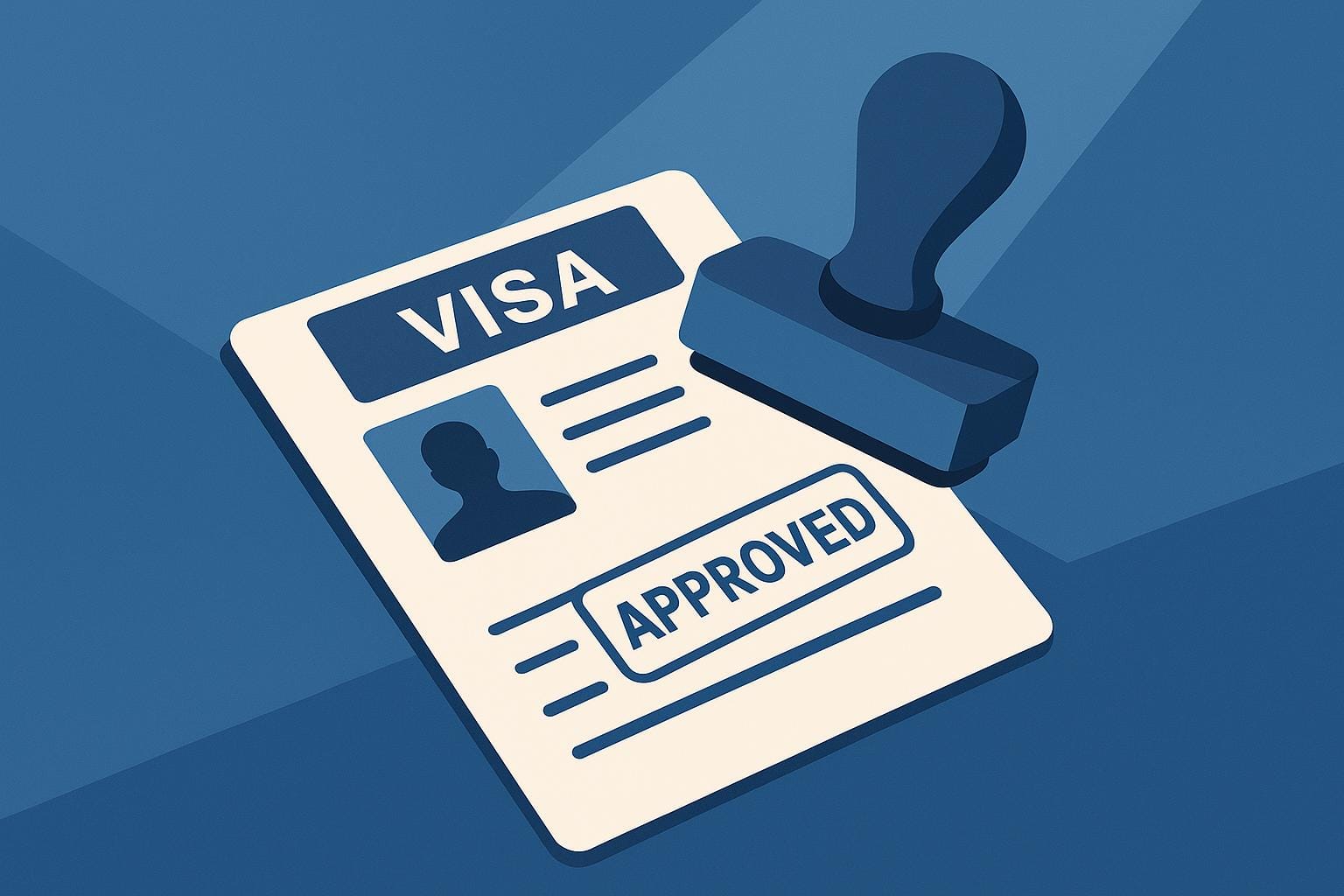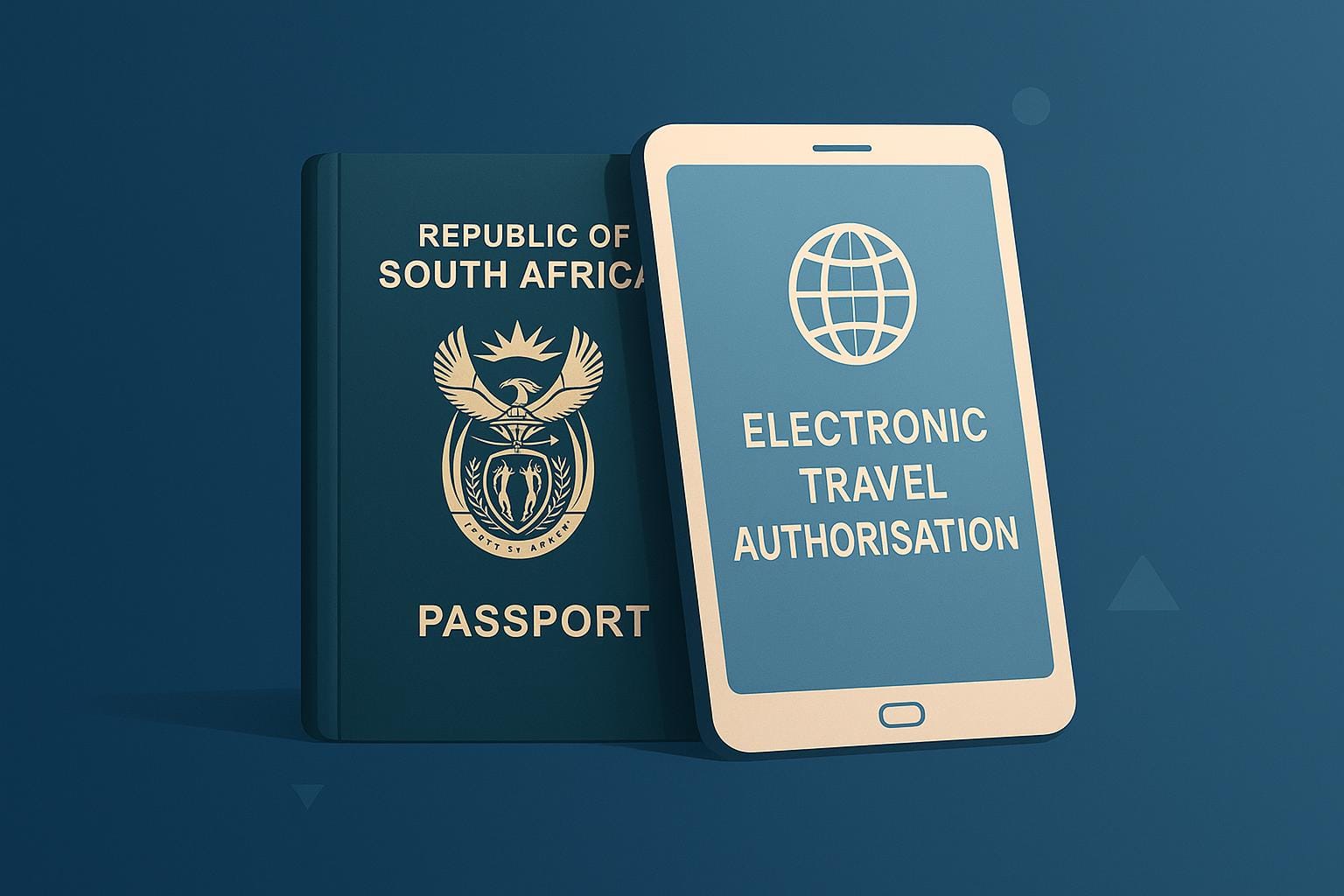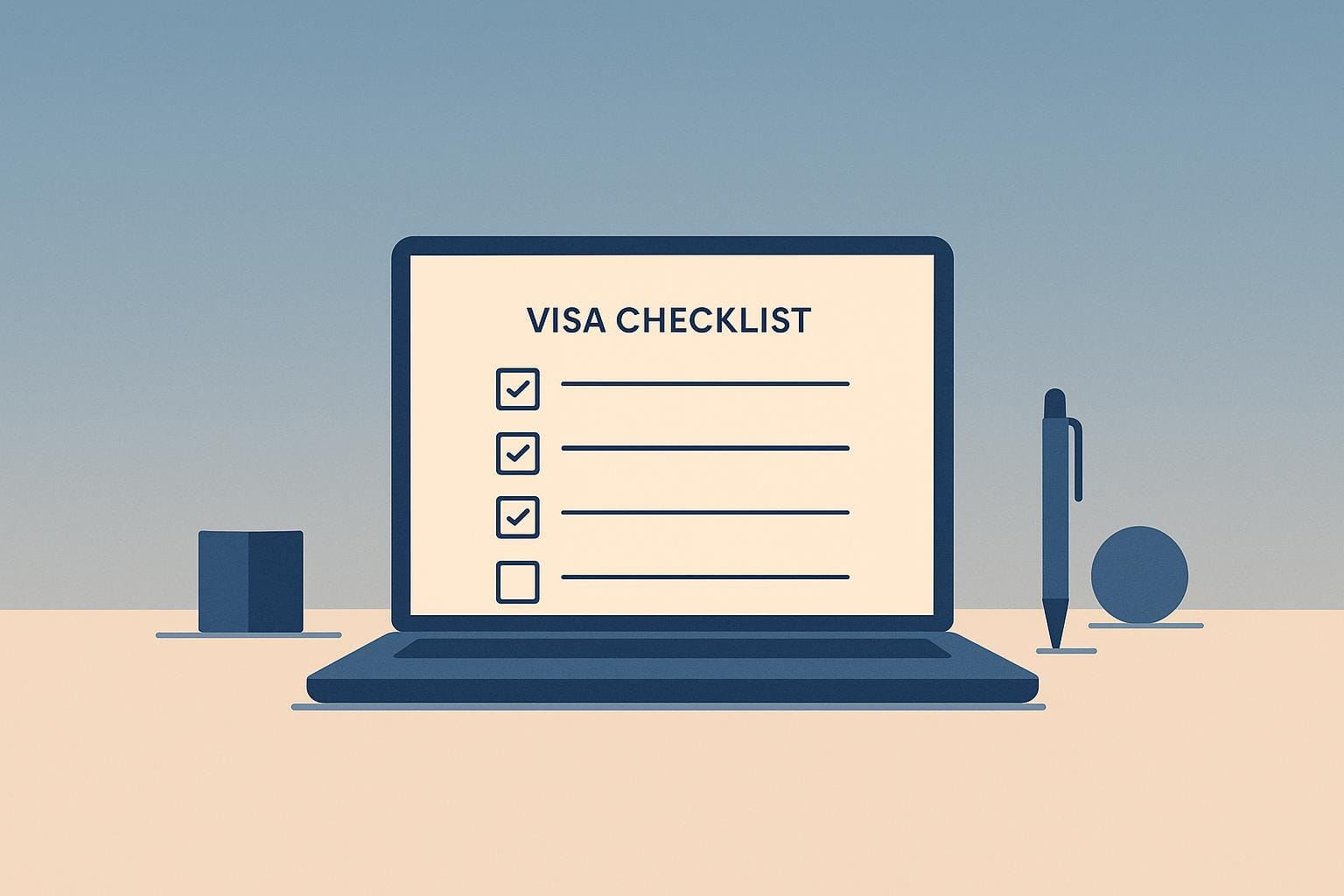Managing visa data is essential for compliance and smooth employee mobility. Here’s what you need to know:
-
Key Practices:
- Track visa expiration dates.
- Retain visa applications, supporting documents, and audit trails.
- Follow UK GDPR and Home Office immigration rules.
- Protect sensitive data with strong security measures.
-
Retention Periods (as per Home Office Appendix D, April 2025):
- Worker and Temporary Worker visas: Keep records for sponsorship duration + 1 year.
- Student visas: Retain academic and attendance records for the same period.
-
Team Roles:
- HR: Manage employee documents and visa expiry tracking.
- Legal: Ensure compliance with updated regulations.
- Visa Managers: Process applications and verify documents.
-
Security Measures:
- Use encryption, multi-factor authentication, and role-based permissions.
- Implement secure backup systems and document lifecycle management.
Non-compliance risks include fines, loss of sponsorship licences, and operational disruptions. Tools like VisaDoc can simplify data retention, ensuring compliance and efficiency.
Data Retention Laws and Rules
Keeping accurate visa records means strictly following data protection and immigration laws. From April 2025, organisations must align with both UK GDPR standards and Home Office immigration rules.
GDPR and International Requirements
The UK GDPR lays out essential rules for managing personal data during visa processing. Organisations must ensure they have a legal basis for retaining data and implement strong security measures to protect it.
Key GDPR principles for visa data include:
- Purpose Limitation: Data should only be used for specific visa-related purposes.
- Storage Limitation: Keep records only for as long as they’re needed.
- Data Security: Apply strong technical and organisational safeguards.
- Documentation: Maintain clear records of data processing and retention activities.
"Processing of sensitive data (such as biometric or criminal data) for visa purposes must be justified under both GDPR and specific legal authorisations, with additional safeguards required."
Using a centralised system, like VisaDoc, can simplify retention schedules and help meet varying international and UK-specific requirements. Here’s how UK immigration rules tie into these principles.
UK Immigration Record Requirements
The Home Office's Appendix D (version 04/25, dated 9 April 2025) outlines specific retention rules based on sponsor categories:
| Sponsor Type | Required Documents | Retention Period |
|---|---|---|
| Worker | Employment records, salary evidence, professional accreditations | Duration of sponsorship + 1 year |
| Temporary Worker | Activity evidence, temporary employment proof | Duration of sponsorship + 1 year |
| Student | Academic qualifications, course details, attendance records | Duration of sponsorship + 1 year |
Recent updates include stricter documentation for Skilled Worker sponsors, particularly around the "care worker recruitment requirement".
Key documents that must be retained include:
- Identification Documents: Copies of valid passports and travel papers.
- Right to Work Evidence: Up-to-date verification records.
- Contact Information: Current residential addresses.
- Financial Records: Proof of financial stability.
- Activity Records: Documentation of planned business operations.
"Visa case files are typically disposed of thirteen months after a decision, unless there is a risk-assessed reason to retain them longer, especially if secure storage is not available."
To avoid penalties, organisations should invest in secure digital storage systems with automated retention tracking. Regular audits and staff training are also essential for staying compliant.
Required Document Types
Keeping thorough visa documentation is essential for meeting Home Office requirements. Organisations must maintain specific records to support visa applications and meet sponsorship obligations.
Visa Application Records
Organisations are responsible for securely storing all documents related to visa applications, such as:
- Application forms and any amendments
- Copies of passports and entry clearance documents
- Financial records
- Qualifications and certifications
These records should be kept in a secure, auditable system to ensure readiness for Home Office inspections.
Employer Sponsorship Files
For sponsor licence holders, maintaining detailed records is crucial. These should include:
- Details of Certificates of Sponsorship
- Right to work verification documents
- Employee contracts
- Financial evidence
- Professional accreditations
These files work alongside visa application documents to demonstrate ongoing compliance with sponsorship requirements.
Identity and Work Eligibility Verification
Organisations must verify the identity and work eligibility of employees by:
- Collecting and securely storing biometric and identification data
- Recording initial and follow-up checks for work eligibility
- Keeping up-to-date contact details for sponsored workers
Centralising these records and conducting regular audits can help close compliance gaps. Tools like VisaDoc offer digital solutions for managing and storing these critical documents, supporting HR and legal teams in adhering to regulatory standards.
These document types are the foundation of a robust visa compliance system.
Data Storage and Security Methods
Protecting sensitive business visa data requires robust security measures to ensure compliance and safeguard information.
Digital Storage Security
Electronic storage demands multiple layers of protection to ensure data remains secure. These measures include:
- End-to-end encryption for all stored documents and communications.
- Multi-factor authentication to restrict access to authorised users.
- Role-based permissions to control who can view or modify specific documents.
- Secure logging to track document interactions.
- Regular security updates and vulnerability checks to address potential risks.
To guarantee continuity and uphold data sovereignty, organisations should utilise automated backup systems with redundancy across secure, UK-based data centres. These digital safeguards work hand-in-hand with structured record lifecycle management practices.
Record Lifecycle Management
Beyond digital security, managing the lifecycle of records is crucial for maintaining data integrity. This involves key stages, each with specific actions:
| Lifecycle Stage | Requirements | Actions |
|---|---|---|
| Creation | Document classification | Tag and secure the document. |
| Active Use | Access monitoring | Regularly check access and permissions. |
| Archive | Compliance verification | Transfer to secure long-term storage. |
| Disposal | Secure destruction | Issue certificates for data destruction. |
For sensitive personal data, such as that found in visa applications, organisations must document disposal decisions and methods clearly to ensure compliance.
Document Management Systems
Centralised systems, like VisaDoc, streamline compliance by combining secure storage with controlled record lifecycle management. The VisaDoc platform offers features such as:
- Automated retention enforcement to meet regulatory requirements.
- Real-time compliance monitoring.
- Secure document sharing options.
- Integrated audit trails for transparency.
- Automated backup and disaster recovery solutions.
By consolidating visa documentation into a purpose-built system, organisations can minimise compliance risks while improving operational efficiency. Automated retention policies ensure documents are preserved for the required duration and securely disposed of when no longer needed.
Regular audits and system updates help maintain high security standards and adapt to changing compliance demands. This structured approach not only reduces the risk of data breaches but also ensures readiness for regulatory inspections.
Non-Compliance Results
Failing to follow business visa data retention rules can lead to hefty fines and operational challenges that no organisation wants to face.
Financial Penalties
When businesses breach data protection, sponsor licence, or record-keeping regulations, they risk fines that vary depending on the severity of the violation. To avoid such penalties, organisations need to routinely review and refine their data retention processes. But the impact of non-compliance doesn’t stop at fines - it can also throw daily operations into disarray.
Business Impact
Poor data retention practices come with more than just financial consequences. They can result in legal troubles and tarnish an organisation’s reputation. Non-compliance often leads to operational setbacks, including:
- Suspension or loss of sponsorship licences
- Delays in visa processing
- Increased scrutiny through external audits
These disruptions can make it harder to attract skilled international talent, strain relationships with business partners, and drive up operational costs in the long run. To reduce these risks, businesses should invest in reliable data retention strategies, such as automated compliance tools and regular internal audits. These measures not only keep organisations compliant but also help maintain smooth operations.
Summary
Managing data retention effectively is crucial for ensuring compliance and facilitating smooth visa processing. Here's a recap of the key practices covered earlier:
- Securely manage and track visa documentation: Keeping records organised and easily accessible is essential.
- Implement robust digital security measures: Protect sensitive data from breaches or unauthorised access.
- Monitor retention periods: Avoid penalties by adhering to legal requirements for data storage timelines.
To streamline these processes, automated solutions like VisaDoc can be invaluable. These tools assist HR and legal teams by simplifying documentation management, using AI for verification, and ensuring compliance checks are thorough. By automating these tasks, organisations can stay on top of compliance without unnecessary hassle.
A well-structured record system not only supports international mobility but also reduces compliance risks, all while keeping visa processing operations efficient and reliable.
FAQs
What happens if a company fails to comply with data retention rules for business visas?
Non-compliance with data retention rules for business visas can bring about serious repercussions for companies. These can range from substantial fines for not adhering to regulations to major disruptions in business travel, including denied boarding, visa denials, or processing delays.
Beyond the financial and logistical setbacks, neglecting compliance can tarnish a company's reputation and limit employee mobility, which may ultimately affect essential business activities. Adopting proper data retention practices is crucial to sidestep these risks and ensure smooth international travel for your team.
What steps can organisations take to securely store and manage sensitive visa data?
To keep sensitive visa data safe, organisations should use enterprise-grade encryption and rely on a secure cloud infrastructure. This approach helps guard against unauthorised access and potential data breaches.
Tools like VisaDoc are built to align with key data protection laws, including GDPR, by handling sensitive information in certified secure environments. These platforms also assist HR and legal teams in simplifying visa management processes while upholding top security measures.
By adopting strong data retention policies and trusted solutions, businesses can better meet compliance requirements and minimise the risk of legal or financial repercussions.
What documents should businesses retain to comply with UK immigration rules for different types of business visas?
To meet UK immigration regulations, businesses are required to keep certain documents related to business visas. These typically include:
- Employee identification: Copies of passports, visa stamps, or biometric residence permits.
- Proof of work eligibility: Documents like sponsorship certificates or visa approval letters that confirm the employee's right to work in the UK.
- Employment records: Items such as contracts, job descriptions, and payroll details to demonstrate adherence to visa conditions.
The length of time these documents must be kept depends on the type of visa and specific legal requirements, but they are usually retained for at least two years after the employee leaves the organisation. For precise instructions, HR and legal teams should refer to official UK Home Office guidelines and follow best practices, including regular audits and secure document storage.













